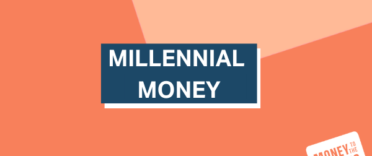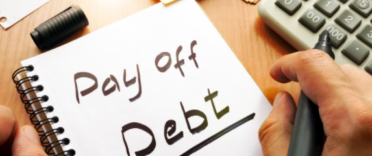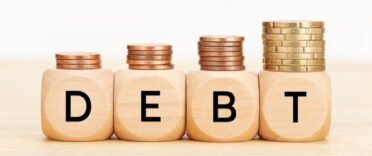 If you have a personal loan and are struggling to keep up with the repayments, or want a way of reducing your debt, you may be considering whether you can transfer it to a 0% credit card. In this article we explore how to use a credit card as a way to pay off loan debt, what the advantages and disadvantages are of doing so and outline alternative options.
If you have a personal loan and are struggling to keep up with the repayments, or want a way of reducing your debt, you may be considering whether you can transfer it to a 0% credit card. In this article we explore how to use a credit card as a way to pay off loan debt, what the advantages and disadvantages are of doing so and outline alternative options.
Can you pay off a loan with a credit card?
There is a way to use a 0% interest credit card to pay off a personal loan. By taking out a money-transfer credit card with a good introductory offer, you can transfer money from the card to your bank account and then use these funds to pay off the loan debt. You then need to make sure you repay the balance on the money-transfer card before the end of the introductory period in order to avoid paying interest on any remaining amount left on the card. You can read our 'Complete guide to the best money-transfer credit cards' to learn more.
There are different types of credit cards that offer cardholders an interest-free introductory period. During this time, they only need to make the repayment on the money owed and don't have to pay any additional interest. We go into more detail on 0% rates in our article 'What does 0% interest, or APR, mean on a credit card?'.
How to use a money-transfer credit card to pay off a loan
Here are the steps to follow to pay off your loan using a credit card.
1. Find the right money-transfer credit card
When considering which money-transfer card to apply for, the main features you are looking at are:
- The length of the introductory period: You are ideally looking for the card that has the longest guaranteed interest-free period.
- The money-transfer fee: Some money-transfer cards will charge a percentage of the balance you want to transfer as a fee. This could be anything up to 5%, which could make a significant difference if you are looking to transfer a large amount.
- The credit limit: The amount you can take out will vary depending on your provider, but you ideally want to secure a credit limit that will enable you to pay off the total amount outstanding on your personal loan.
- The APR after the introductory period: Although the goal is to pay off the total amount during the introductory period, it is worth considering what the rate on the card will be after this point. There's clearly a big difference between paying 20% APR compared with 40% APR on any balance remaining on the card.
Importantly, you need to find a card you will be approved for, so it pays to use an online eligibility checker on the card provider's website before making a full application. This allows you to get a good idea of whether you are likely to be approved without it leaving a hard footprint on your credit file. It can be detrimental to your credit rating to be turned down for credit, particularly if you apply for several cards in a short space of time. Read our article 'How to apply for a credit card' to learn more about the basics of a credit card application.
Our current top-3 money-transfer credit cards are:
| Name of card | Representative APR | Interest-free period | Money transfer fee | Perks | Extra information |
| MBNA Money Transfer Credit Card | 24.90% variable | Up to 12 months | 4.00% | n/a | Interest-free period subject to status - some applicants may get 14 months |
| Virgin Money Balance Transfer Credit Card | 26.90% variable | 12 months | 4.00% | Offers through Virgin Group discounts | 12 months interest-free on balance transfer and purchases, as well as money transfer |
| Tesco Bank Balance Transfer Credit Card | 24.90% variable | 9 months | 3.99% | Earn Tesco Clubcard points | Interest-free periods on balance transfer and purchases |
2. Confirm the loan amount you need to repay
Find out exactly how much money you will need to repay your personal loan in full and close the account by contacting your lender to request a final settlement figure. You can then ensure you have a sufficient credit limit on the money transfer credit card you choose to apply for.
At this point it is also worth finding out if there are any additional fees payable on the loan and double-checking you are able to repay the loan before the end of the term without any financial penalties.
3. Check your plan
Although theoretically using a credit card to clear loan debt can be a good idea, you need to be realistic about whether you are going to be able to repay the debt in full with the amount you can transfer from the card. It is also crucial that you are able to pay off the credit card balance in full by the end of the introductory period.
Unless you have a particularly high-cost loan, it will typically be significantly cheaper to finish paying off the loan than pay interest on the credit card after the introductory period.
Work out in advance, how much you will have to repay each month to repay the debt within the introductory period. Then include that within your budget, taking into consideration other expenses you are likely to have over that time. You can read our article about 'The best budgeting apps in the UK' if you are unsure where to begin. Try to factor in a buffer to ensure the debt is repaid in time and look to set up a direct debit to make sure you make the repayments on time.
If you are unsure whether this is the right option for clearing your debt, reach out for free expert advice. We have more information in our article 'Where to get free debt advice'.
4. Take out the card and pay off the loan
There will typically be a set period of time for you to make the transfer into your current account after you get your money transfer credit card in order to enjoy the 0% interest period. This is typically 30-90 days, but check with your card provider. As soon as you have transferred the money to your account, use it to pay off the loan, in full. Request written confirmation from the loan company that the debt has been settled and the account closed.
We have more information on how to pay off a credit card in our article '4 easy ways to clear your credit card debt'.
How to find out which credit card is best for you
Money to the Masses uses Creditec*, an online comparison service that enables you to find credit card deals tailored to you without affecting your credit score. You will want to compare as many different options as possible before you get a new credit card, so it is a good idea to do a fast online comparison. With only a few basic details, the Creditec tool will build a personalised list of credit cards suited to your needs to help you navigate the huge number of options out there. You can then pick the result that suits you best. None of this will affect your credit score as the eligibility process uses a soft credit check. Click here to start your comparison*.
Pros and cons of using a credit card to pay off a loan
Here is a summary of the key advantages and disadvantages to using a credit card to clear loan debt:
Pros of using a credit card to pay off a loan
- If you have a high-cost loan, using a money-transfer credit card can potentially save you a large amount in interest payments.
- Some cards have additional perks and benefits, such as the ability to earn points or cashback or the possibility of joining a loyalty scheme offering discounts with certain retailers.
Cons of using a credit card to pay off a loan
- There is a risk you will end up paying more overall if you don't manage to repay the balance on the card by the end of the introductory period.
- If the interest rate is relatively low on the loan, you could end up paying more in interest by using a money transfer credit card if you fail to clear the balance by the end of the introductory offer period.
- Depending on the size of your loan debt, it can be difficult to find a card that will give you a credit limit large enough to repay it in full.
- If you miss any of the minimum repayments, you could immediately forego the interest-free offer, meaning you would have to start paying the debt at the standard APR for the card.
- There will typically be an initial fee charged by the money transfer card of up to 5% of the amount transferred to your bank account.
Read our article 'Should I get a credit card?' to find out if it is the right option for managing your debt.
Can you transfer a personal loan to a credit card?
In most cases it isn't possible to directly transfer personal loan debt to a credit card. It is possible to move credit card debt with a balance transfer credit card, which allows users to transfer existing debt from other credit or store cards, but not personal loans. You can read more about balance transfers in our article 'What is a balance transfer credit card and how does it work?'.
You can find out more about the different types of credit card in our article 'Which credit card is best for me?'.
Alternatives to using a credit card to pay off a loan
If you are struggling with repaying your personal loan, a good first port of call is talking to the lender. It may be able to offer you support, including offering payment holidays or extending the term of the loan to reduce the payments. It is worth noting, however, that both of these options result in you having to pay more in interest over the lifetime of the loan and could also damage your credit score.
Another option is to see if you can manage your money more efficiently by using a budgeting app, which could then free up extra funds to repay the debt more easily or even to enable you to overpay on the loan and reduce the overall term.
For more serious debt problems, it's worth getting free independent advice from organisations like Citizens Advice or StepChange. There are options such as debt consolidation loans, individual voluntary arrangements, debt relief orders and even bankruptcy, although the ramifications of these are significant and you shouldn't consider them without taking advice.
We have more information in our article 'What happens if I don’t pay off my credit card?'.
Find out which credit cards you are eligible for on our 'Check credit card eligibility: What credit cards am I eligible for?' page.







